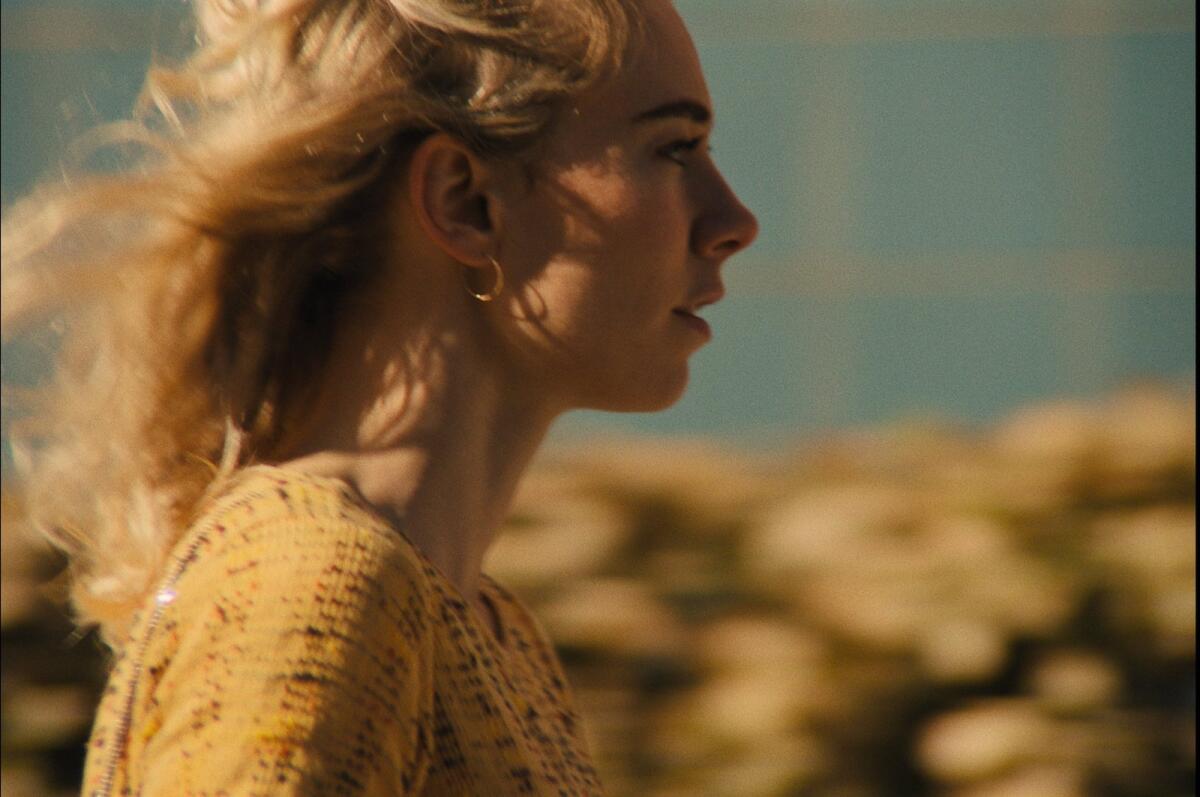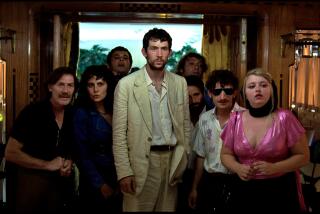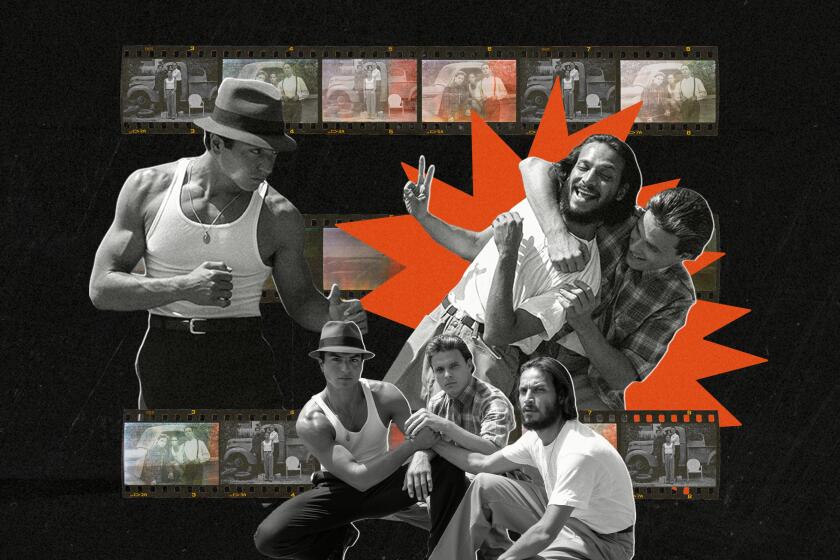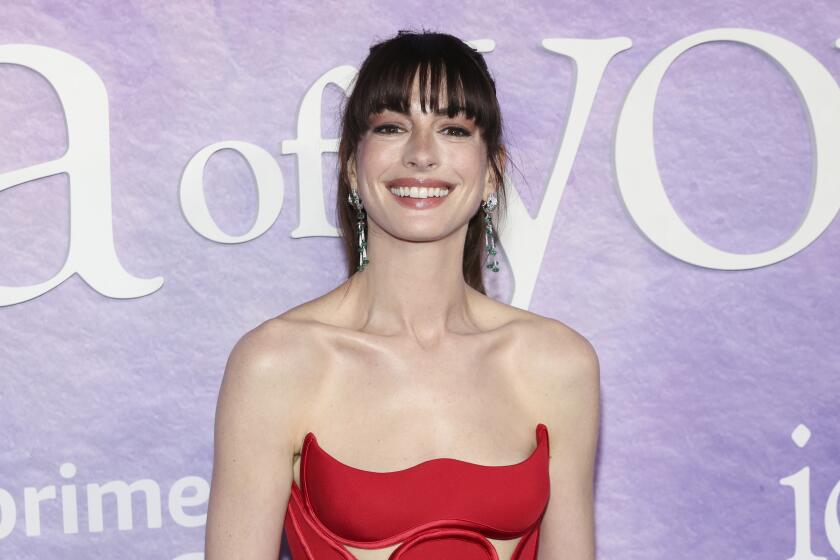Review: Vanessa Kirby stars in ‘Italian Studies,’ a free-flowing lesson in self-discovery

The Times is committed to reviewing theatrical film releases during the COVID-19 pandemic. Because moviegoing carries risks during this time, we remind readers to follow health and safety guidelines as outlined by the Centers for Disease Control and Prevention and local health officials.
Alina (Vanessa Kirby) enters the warm embrace of a party on the arm of her dashing husband. A young woman watches her carefully from the corner, and later, when Alina bums a cigarette, she’ll ask Alina, “do you remember me?” Alina doesn’t. It’s the first of many lapses in memory that mark the elliptical, lyrical “Italian Studies,” written and directed by Adam Leon.
“Was it when I lost my dog?” Alina asks, and out of the fog of memory, a flashback crystallizes. The narrative gives way to another time in another place: New York City. Alina walks her dog to a hardware store, and when she’s inside, a great cacophony of clanking and voices in her head swirls into a disorienting blur. She wanders outside in a daze, forgetting the dog, forgetting who she is and where she’s supposed to be. Her sudden onset of amnesia renders the already chaotic jumble of people on the streets of Manhattan even more intimidating.
Leon’s film is an exercise in crafting a subjective cityscape. Wandering the streets, Alina is a blank slate, rebuilding herself from context clues and in relationship to the people around her. It poses the question: what would this city be like if you suddenly had no knowledge of yourself, no memories, no purpose, no place to go?
Images of a gaggle of cool teens pop up throughout her journey through the city. They seem to be walking the streets aimlessly, and Alina falls in with them after connecting with a funny, loquacious kid named Simon (Simon Brickner) at a Gray’s Papaya hot dog stand. She easily attaches herself to this loosely knit group for house parties, open mics, meals and safety.
Interspersed throughout are documentary-style interviews with the kids, where they muse on first loves, popularity, the way they are figuring themselves out, as well as who they are in relationship to others. Occupying that liminal space between childhood and adulthood, they are soft, clay-like, open to new experiences and people, which makes the newly guileless Alina more like them than she is anyone else.
The fluid, experimental nature of youth is juxtaposed with the rigidity of adulthood in an interaction between Alina and an older man at a library. Having been recognized on the street by a fan, Alina discovers she’s a writer with a short story collection titled “Italian Studies.” Reading the book at a library, she impulsively signs it, imprinting herself on this work. The man scolds her for writing in a library book, and Alina balks at his bossiness, this enforcement of this rule, especially when she’s doing no harm. It’s no wonder she seeks emotional shelter with Simon and his friends.
“Italian Studies” is a unique curio of a film, a free sketch of time and place melting into a singular subjective experience that asks “does memory matter?” Perhaps, it does not. Maybe forgetting who we are for a moment is a portal to our own liberation. But it seems more apt to say that it’s the remembering of who we were before we became so set in our own personas that’s the key to getting back to ourselves.
Katie Walsh is a Tribune News Service film critic.
‘Italian Studies’
Not rated
Running Time: 1 hour 18 minutes
Playing: Starts Jan. 14 in limited release; also available on VOD
More to Read
Only good movies
Get the Indie Focus newsletter, Mark Olsen's weekly guide to the world of cinema.
You may occasionally receive promotional content from the Los Angeles Times.






